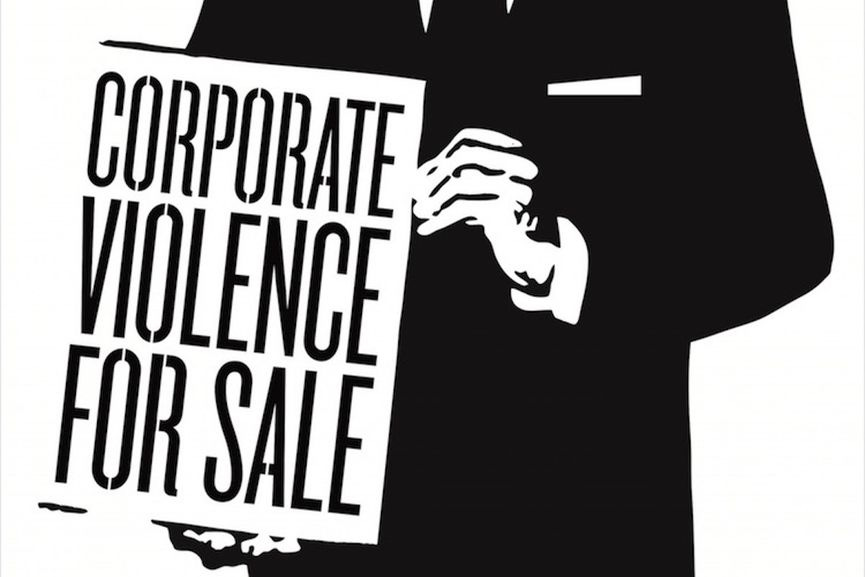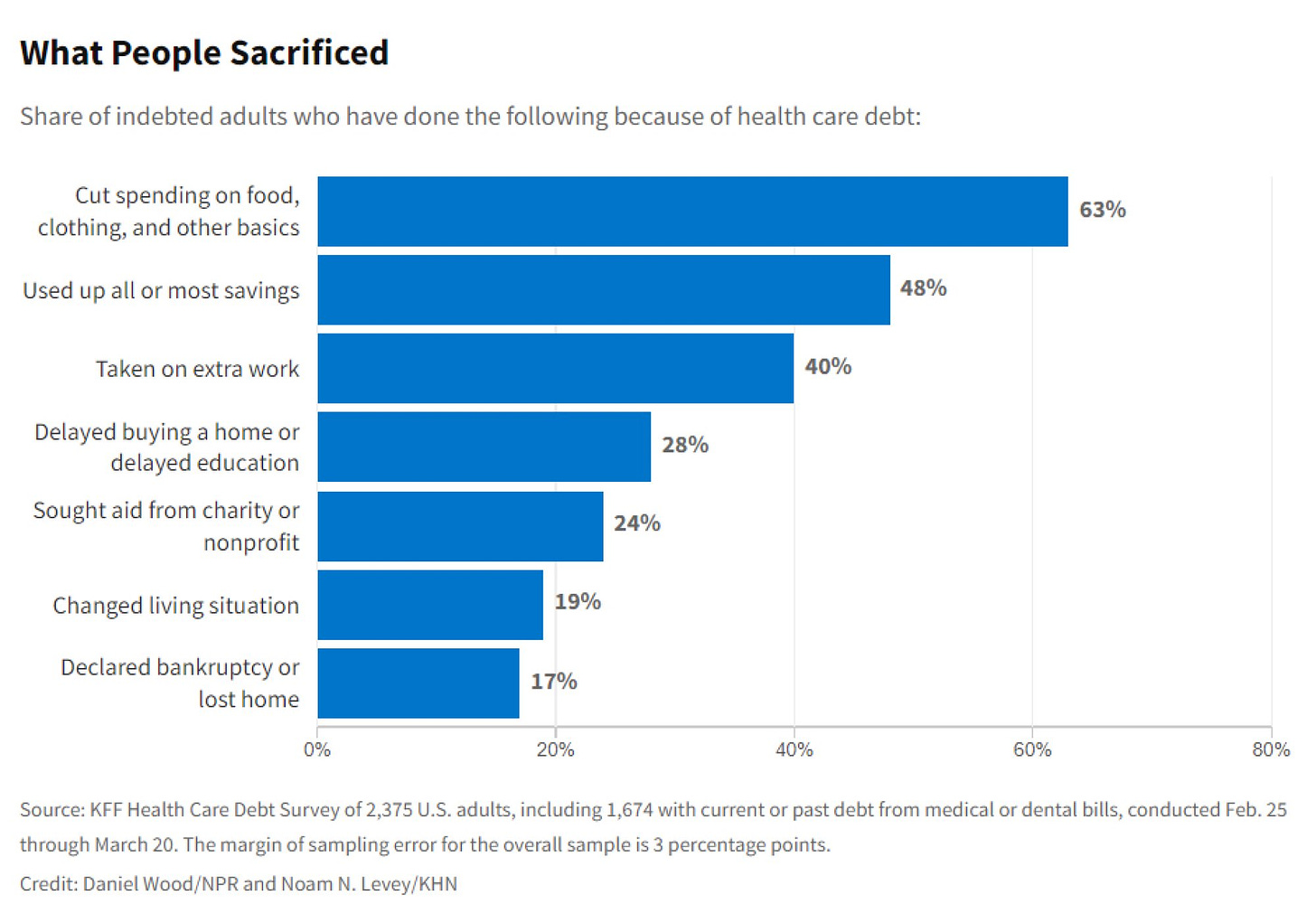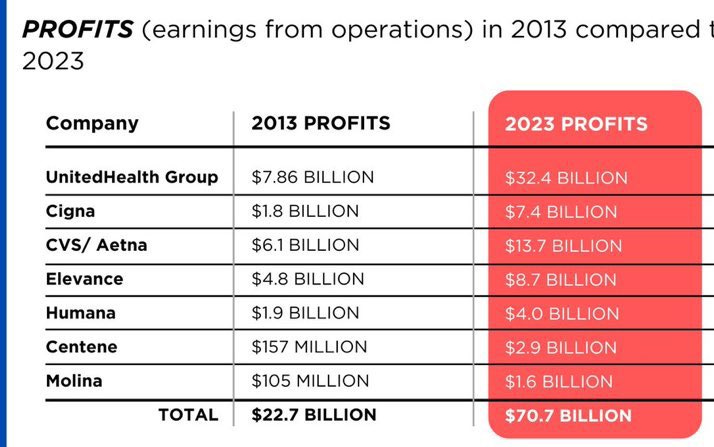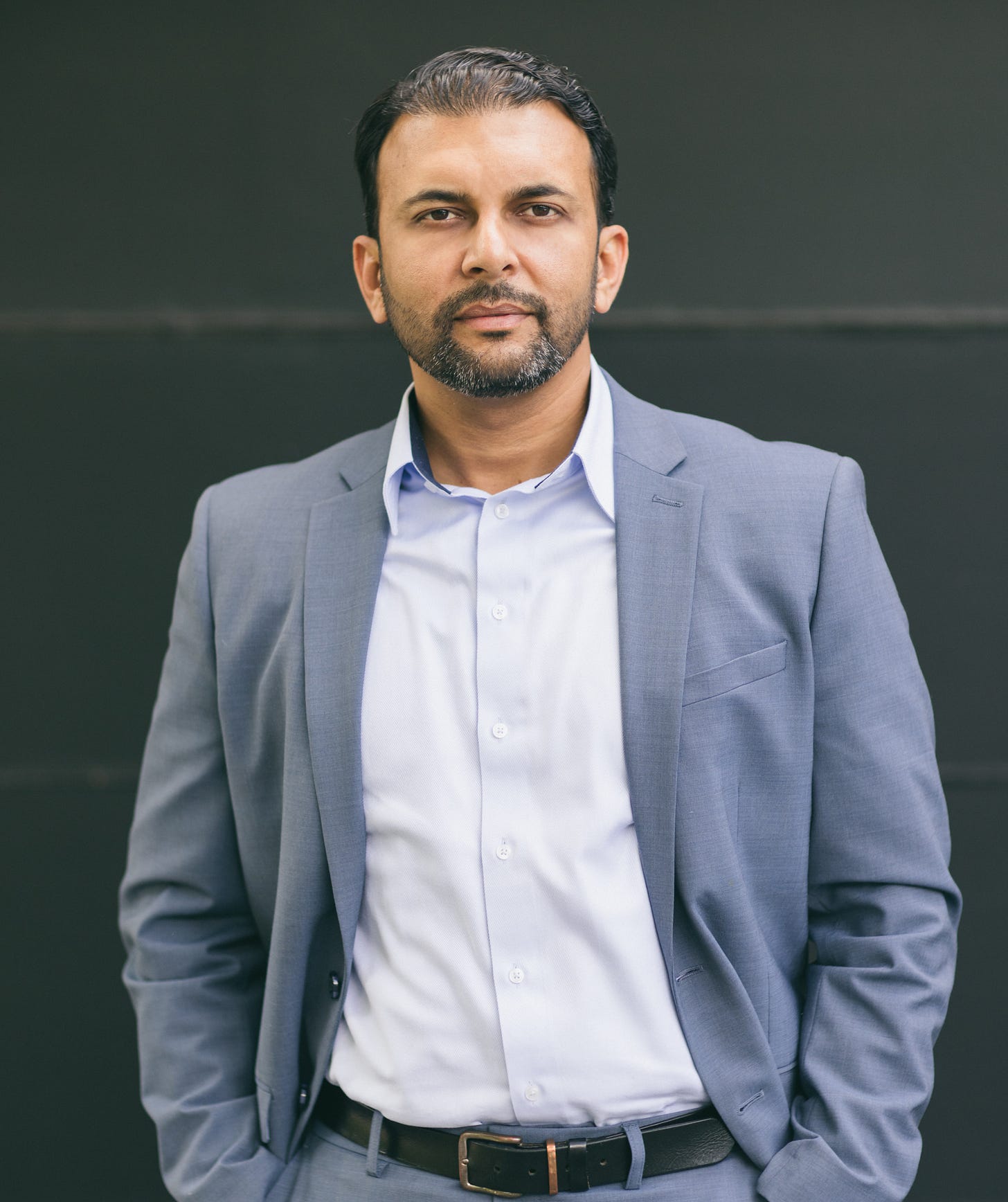Where Is Our Corporate Reckoning?
If we agree murder is wrong, and it is, why do we tolerate corporate policies that kill Americans?
The recent killing of UnitedHealth’s CEO has forced an uncomfortable conversation about our healthcare system, and about the broader lack of accountability of corporations. For generations, corporations have gotten away with literally killing Americans, yet not one executive has ever gone to prison. Meanwhile, politicians—who are supposed to represent the people—capitulate to corporate donations and turn a blind eye to the suffering of working people. It is important we recognize these grotesque examples of corporate violence for what they are, so we can effectively arm ourselves against their ongoing onslaught. Let’s Address This.

If we agree that murder is wrong, then we must also agree that corporate policies knowingly designed to prioritize profits over human lives are equally immoral. If denying care that leads to death isn’t murder, then what is it? Our system allows the rich to kill the poor through bureaucracy, all while masking it as business as usual.
This isn’t hyperbole, and I present documented examples below.
UnitedHealth
UnitedHealth, like many for-profit health insurance companies, has built its wealth by leading the industry in denying care to those who need it most. Denied care that has led to countless documented deaths. Yet, this systemic violence—driven by corporate greed—is rarely acknowledged as such. Why? And it isn’t just in healthcare that we see this corporate violence against working people. It is a corporate violence free for all.
Johnson & Johnson
For example, Johnson & Johnson knew for decades that its baby powder had asbestos in it, knew that asbestos causes cancer and other horrific health conditions, yet continued to produce its baby powder even as its customers got sick and died. Consider the case of Darlene Coker, a woman dying due to using J&J baby powder that J&J knew was poisonous.
Coker and her lawyer sought [filed a lawsuit] compelling J&J to share thousands of pages of company memos, internal reports and other confidential documents with lawyers for some of the 11,700 plaintiffs now claiming that the company’s talc caused their cancers — including thousands of women with ovarian cancer. A Reuters examination of many of those documents, as well as deposition and trial testimony, shows that from at least 1971 to the early 2000s, the company’s raw talc and finished powders sometimes tested positive for small amounts of asbestos, and that company executives, mine managers, scientists, doctors and lawyers fretted over the problem and how to address it while failing to disclose it to regulators or the public.
By the way, zero Johnson & Johnson executives ever went to prison for this crime.
Ford Motor Company
Who can forget that Ford knew that their Pinto was liable to catching fire, yet made the cold and heartless calculation that paying settlements to families whose loved ones burned to death would be cheaper than fixing the faulty design that led to fires? Despite 27 confirmed deaths due to the Pinto’s faulty design, zero Ford executives ever went to prison.
Purdue Pharma
The Sackler family of Purdue Pharma illegally pushed opioids into the market, knowing full well that they would result in opioid deaths due to addiction and overdose. Despite the hundreds of thousands of people who have died due to this devastating opioid crisis, zero Sackler family members or Purdue Pharma executives have gone to prison. Instead they’ve been let off the hook with a fine.
Each of the aforementioned CEOs and executives deliberately committed acts that they knew would result in the killing of ordinary people, yet none of them went to prison. And none of them are so much as described as murderers or terrorists. Are the corporate elitists in their ivory towers so high up that they cannot see the grotesque hypocrisy that us ordinary folks on the ground can see clear as day??
If the punishment for a crime is a fine, then that is a law that exists only for the poor.
The examples are near endless of corporations committing acts that they know will kill people, yet facing no consequences as a result of their deadly and deliberate decisions. Indeed, you will be hard pressed to find any CEOs or executives that went to prison for committing corporate violence—yet you can be almost certain that the assailant who killed the UnitedHealth CEO will see prison. The question here isn’t about justifying violence—because that violence is already deemed ‘justified’ as long as, and only if, it is done by corporations under the guise of ‘maximizing shareholder value.’ The question is, why don’t the people who finally woke up when an assailant violently killed the UnitedHealth CEO, also recognize the deadly and mass corporate violence that goes unpunished every day?
Therefore, it bears repeating, in a just society, how is an assailant killing a CEO in broad daylight materially different than a CEO deliberately poisoning millions of people knowing a significant portion of them will die as a result?
Adding to the frustration and anger at corporations like UnitedHealth, consider what Americans sacrifice every year just to pay for critical and life saving healthcare access. This shouldn’t be normal, yet this is what tens of millions suffer through daily:
Contrast the above exploitation with the massive profits that corporations like UnitedHealth have made over the past decade, and you’ll see further understand why people across the political spectrum are outraged.
Politicians and corporations must recognize this anger as a demand for systemic change. The American people across the political spectrum are tired of living in a country where the wealthy enjoy endless privileges, and endless excuses to literally kill us, while the rest of us are denied basic human rights like healthcare, medicine, or even the ability to use baby powder without being poisoned.
Remember this fact. The social fabric of society did not suddenly break when an assailant killed the UnitedHealth CEO—an assailant killed the UnitedHealth CEO because the social fabric of society is broken. This should be a signal for politicians to stop bowing to billionaires and to start working for the people they are supposed to represent.
As Americans, it is critical we stand united against this exploitation. Whether it’s through demanding universal healthcare, holding corporations accountable for killing us, or fighting for fair economic policies—standing united against such exploitation is how we move forward. Only then can we dismantle the double standards and build a fairer, more just society.
I leave you with this question. The Lancet estimates that 68,000 people die annually due to lack of healthcare or denied healthcare from insurance corporations. Since the Supreme Court has ruled that corporations are people, why are health insurance corporate policies that deny life saving medicine to patients who will die without that medicine, not deemed as intentional murder?







Qasim, I agree with this take. I’m a doctor who is an unfortunate participant in this system. I suspect (as I wrote about on my Substack) that part of the issue is how we interpret individual violence with much more moral anguish than structural violence.
The corporations are playing both sides of the field. They are “ people” if they want to buy politicians but “ entities” when they kill people. We have to force them to choose one or the other.